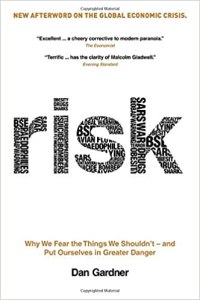
Decisionscape: How Thinking Like an Artist Can Improve Our Decision-Making
by Elspeth Kirkman
“Knowingly or not, we often draw on the logic of pictorial space as a metaphor for our decisions. We use phrases like getting things in perspective or blowing them out of proportion… And we implore one another to zoom out or see the big picture.”
Elspeth Kirkman is a behavioral scientist who uses the analogy of art making to explain the psychology of decision making. “I call this mental representation the decisionscape… The central idea of this book is that we could improve our decisions, whether personal or professional, by constructing and analyzing it deliberately, just as an artist approaches the canvas.”
Continue reading “Decisionscape: How Thinking Like an Artist Can Improve Our Decision-Making”







